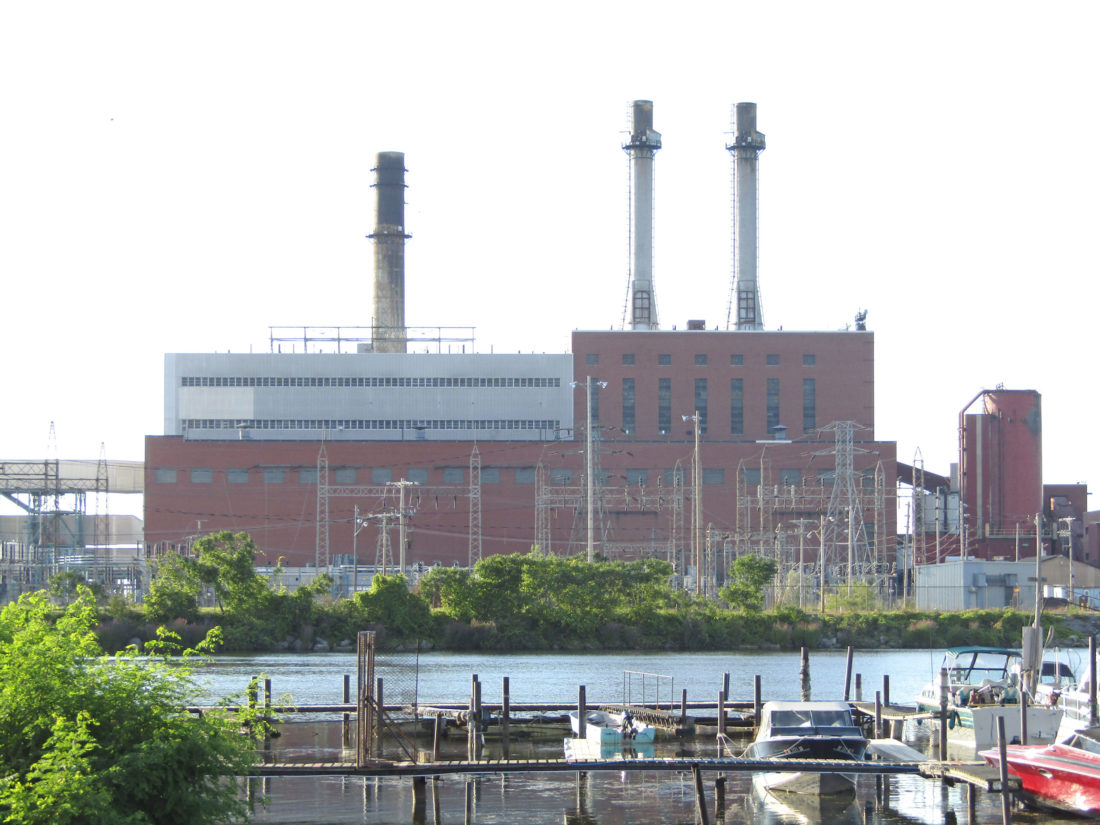Former NRG plant to get environmental study

OBSERVER File Photo Pictured is the former NRG power plant in Dunkirk. The decommissioned plant is going to get another study done, this time to focus on environmental issues.
Over the summer, a study was released about the best use of the decommissioned NRG power plant in Dunkirk.
It stated the best reuse for it would be as a computer data storage site or as some kind of industrial development with the data center included. There were alternatives as well.
Six months later, the decommissioned plant is going to get another study done, this time to focus on environmental issues.
“We received a $160,000 grant to do Phase II study on the NRG facility,” said Mark Geise, chief executive officer of the county Industrial Development Agency during a recent meeting. “This NYSERDA Just Transitioning grant will allow us to dig in a little deeper. We can really put some flesh on the bones and put together some marketing information and do some energy modeling and really figure out what makes the most sense.”
Over the summer, then-Gov. Andrew Cuomo announced the state had created a $5 million “Just Transition Site Reuse Planning Program” to facilitate site reuse planning services and support for communities facing fossil fuel power plant closures. The program will provide eligible communities with resources to begin charting a sustainable and economically viable path forward through site reuse planning services from designated experts, the development of a toolkit as a resource, and enhanced assistance for disadvantaged communities.
In a follow-up email, Geise said Dunkirk was the first to get the Phase II grant. “We are in the scoping phase of the Phase II NYSERDA Just Transition Program, which means we don’t yet have a scope of work completely defined, but will soon. We are the first to be approved for the program, and hope this will result in the key recommendations being further refined,” he said.
Dunkirk Mayor Wilfred Rosas said in a phone interview this next study will focus on environmental issues and costs. “Phase II would get us to the point, if NRG is cooperative, to actually know what type of contamination we have there,” he said.
The first study was headed up by Buffalo’s Bergmann Group. Along with being a computer data storage center, other alternatives that were proposed from the first study included:
Ø Repowering the plant, using coal or natural gas;
Ø Using the site to support off-shore wind development;
Ø Renovating the facility to create a microgrid to distribute power off the main grid;
Ø A “clean slate” for the site, demolishing everything and doing a massive environmental cleanup to get the site ready for recreational, residential or mixed-use development;
Ø Redeveloping the site for some sort of industrial use;
Ø A power storage facility, where electricity generated off-site would be stored in batteries.
The first study noted that repowering is not feasible due to a lack of political support at the state and federal levels. It also dismissed the off-shore wind connection as presenting enormous and probably unsolvable technical and political challenges. The microgrid idea was set aside due to a perceived lack of government support and lack of local demand for it.
The “clean slate” alternative was seen as feasible, but with big challenges. A big one is the cost: it would cost an estimated $12 million to demolish the structures, $3 million to $6 million to clean up environmental hazards and then up to $20 million in additional remediation to get the site to a clean, marketable level.
This Phase II study may be able to get more specifics on the clean-up costs.
The industrial reuse, the power storage and the computer data center options were seen as the preferred alternatives, due to relatively low environmental cleanup costs and their use of some of the existing infrastructure on site. The power storage site was apparently the third place option because it would create a relatively low amount of jobs compared to an industrial use or a data center.
The Bergmann Group will be doing the Phase II study as well. A company official declined to comment at this time.
Geise said they are “keeping their fingers crossed that something good comes out of this.”




